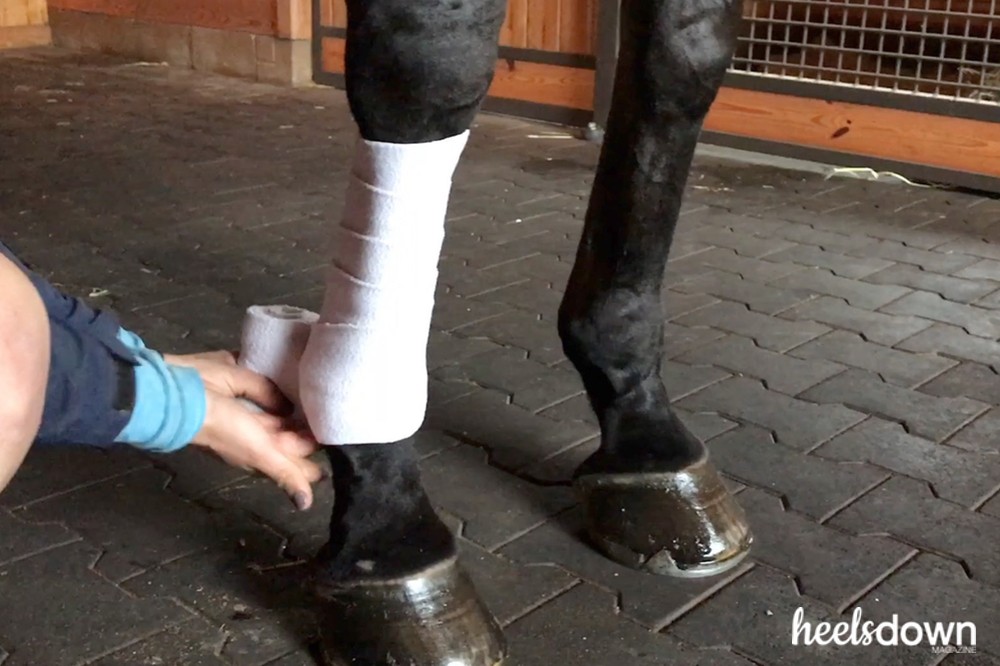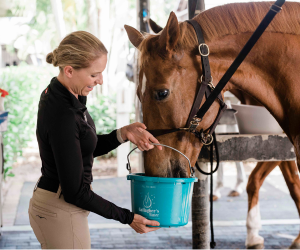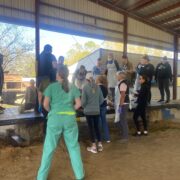Treat On Your Own Or Call The Vet? We Asked The Experts

It’s not uncommon for an equine veterinarian to have been a horse owner long before they went to school to take care of sick horses. Many of them understand the stress owners face when their four-legged competition partner and friend isn’t feeling his best.
But all too often, horse owners try to treat ailments themselves when really, the first call they should make should be to their vet’s office.
When in doubt, it’s always better to contact the vet. That includes experienced owners who can often troubleshoot simple problems on their own. The longer you wait on veterinary care say because you’re trying to avoid a hefty bill – it might have the opposite effect. Money for sure can be a limitation to care, but early intervention is generally more cost effective.
Heels Down Mag gathered advice from vets on when it’s most appropriate to call the vet for help.
Cuts and Lacerations
These common, usually minor ailments can look gruesome at first glance, but may only be superficial. A good barometer on when to call the vet is if a wound just won’t stop bleeding, or if it’s bleeding so much it’s soaking through bandages.
A vet’s expertise is needed in this case because it’s important to make sure a laceration hasn’t penetrated anything important in the leg, like a joint where the limb flexes and moves, or a tendon. Deeper wounds like this often require veterinary attention and detailed care to avoid infection or long-term damage.
Colic
Colic is a condition that can become serious quite fast depending on the situation. When an owner discerns mild discomfort in their horse – such as he’s acting dull or doesn’t want to eat – it can be OK to wait for a little while to see if he improves. Vets generally suggest collecting as much information as you can and share that with your vet early on – for example, if you’ve administered a dose of Banamine on your own, taken baseline heart rate and temperature readings, listened for G.I. sounds – so they has all the most up-to-date information.
But if the horse is not improving within an hour – it’s time for the vet to come out.
One vet told us they “strongly discourage” people to give multiple doses of medication. If the first dose does not show signs of improvement, then it’s time to get the vet involved.
Another misnomer with colic is the constant hand walking.
To some extent it is true that hand walking helps with mobility and to get the blood circulating. But horses can become significantly dehydrated and exhausted after walking for two-to-three hours. Dehydration is not your friend when you’re dealing with colic.
For something like colic, it’s important to make your vet aware of the situation as early as possible, even if it’s after hours or 3 p.m. on a Friday. This will help your vet plan accordingly.
Be Honest
The most important thing owners should know is that they need to be open and honest with their vet. Communication is key to getting your horse on the mend.
Unlike small animal vets, it’s almost industry standard with equine vets that clients have their personal cell number. That means horse owners often walk the line of trying not to pester them during off hours, but at the same time it’s not impolite to text the vet when a horse isn’t feeling well.
Owners should be ready to tell the vet everything about their horse, even the uncomfortable things.
It’s not the job of the vet to judge you if you believe in holistic care practices – say like feeding CBD oil, natural herbs or other methods of care. But in order to get your vet the best clinical picture of what’s worked and what didn’t, and to help them guide the horse into the best treatment plan, they want to have all that information.


